Related Tags
The Libertines on keeping it analogue on their new album
Carl Bârat on how the one-time enfants terrible of UK guitar music have evolved into hoteliers, the power of their 30-year relationship, and why nothing beats an old guitar driving an old amp to breaking point.
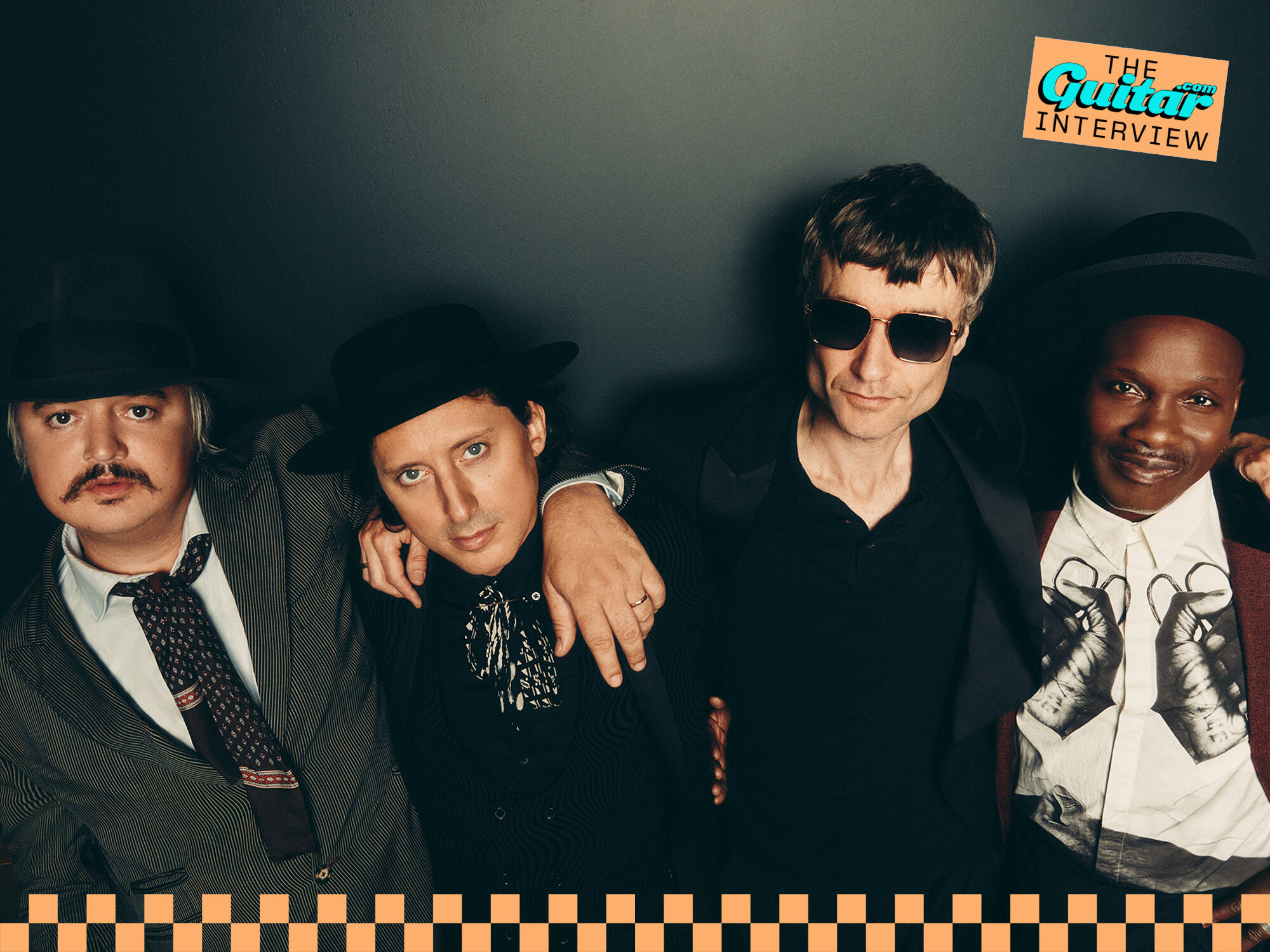
The Libertines, 2023. Image: Ed Cooke
There’s an inordinate amount of care and energy infused into The Libertines’ fourth album, despite Carl Barât’s tongue-in-cheek, casually tossed out line “I’ve forgotten how to care but I’ll remember for cash” in the opening track Run Run Run. Their new album All Quiet On The Eastern Esplanade is the fourth chapter in the band’s volatile and disrupted 30-year existence.
The Libertines insist that they should – or we should – “run, run, run boy, faster than the past…if you want the night to last.” Alas, no amount of running can elude our pasts, but a brilliant, long-awaited album that reminds us how electric The Libertines’ past is? That’s worth stopping the world for.
From their studio in the English seaside town of Margate, itself contained within the hotel that they own (more on that later), Barât and Doherty are giving interviews from opposite ends of the room. When either of them has been posed a question they can’t answer, they amble over to the other to seek advice.
When we ask Barât about when his and Doherty’s writing trip to Jamaica took place, he apologises for being bad with dates. He returns from asking Doherty with “Pete says we were there when Queen Lizzy was being buried.” September 2022, then.
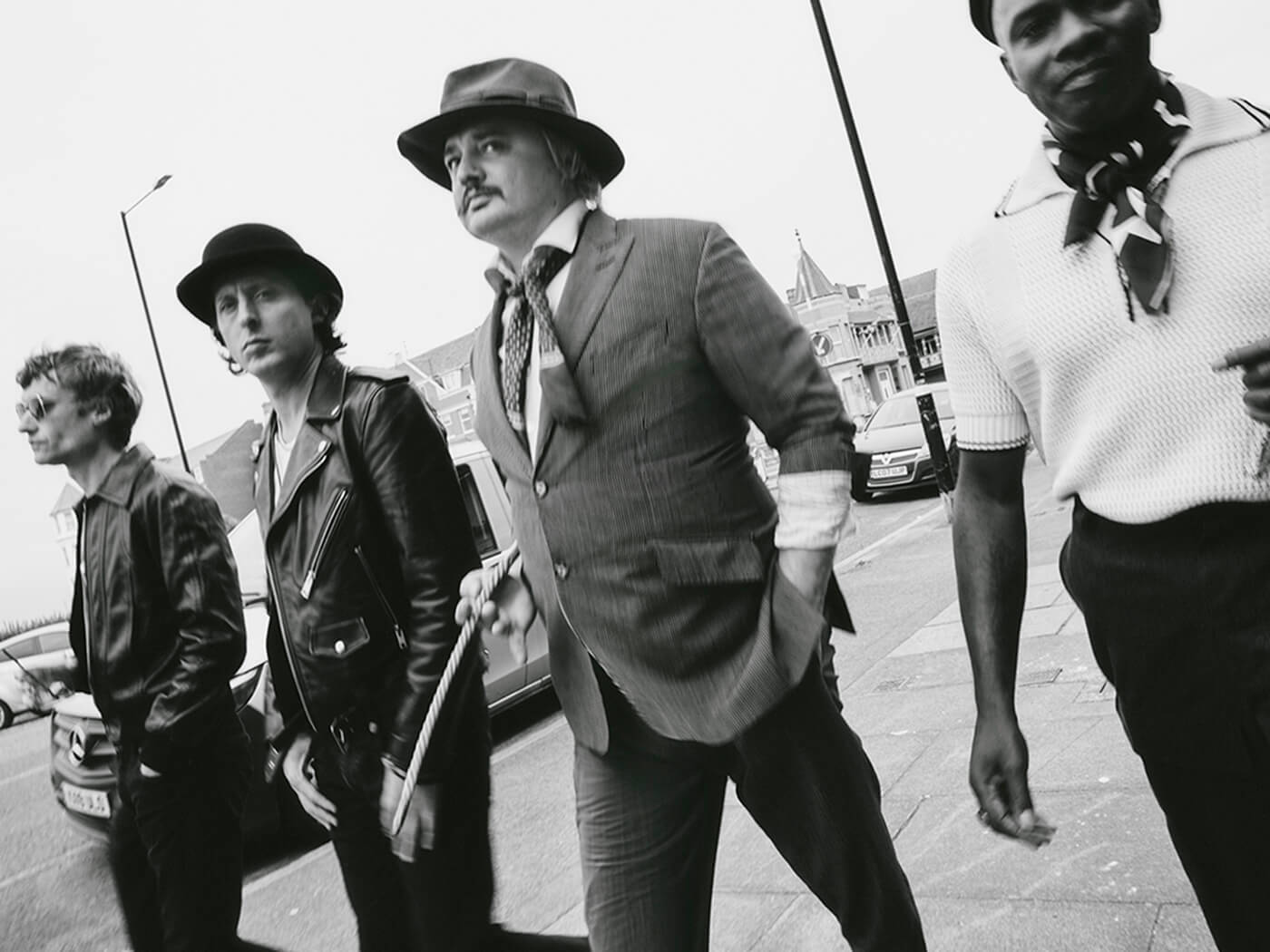
Communal Energy
Barât, epitomising the fashionable indie sleaze phenomenon that The Libertines were role models for in the noughties, is wearing a Russian ‘shapka’ winter cap, which might be a style statement, but could just be a practical nod to the freezing temperatures outside. You never know, because despite being a band that often struggled under the weight of their own mythos, their approach to creation nowadays is one of collective effort and hard work.
Though Barât and Doherty began the writing process in Jamaica in 2022, All Quiet on the Eastern Esplanade was a whole band effort.
“When we write songs together, the songs have to be addressing certain things that are mutual to all of us,” he says. “And when we do that, we put [writing and recording] off for so long because it’s like a massive therapy session, it’s not that comfortable. We have to raise the bar on our previous efforts. There’s a lot of pressure attached to it, so when we came together for this album, we emptied out our pockets to see what we had to start with, then we brought it all together.”
A massive therapy session might have been in order. The world for The Libertines seemingly shuddered and stopped two decades ago following their self-titled second album. It rocketed to the UK number one, spawning the contagiously catchy single Can’t Stand Me Now.
For all its hooky, thrilling indie rock magic, that 2004 album documented the increasingly fraught relationship between the NME-darling frontmen Barât and Doherty. The album cover famously depicted the pair, mid-gig in October 2003, merely hours after Doherty’s release from jail for breaking and entering Barât’s flat to fund his crack cocaine and heroin addictions.
The band appeared to be traipsing a highwire – as did Doherty. Tabloids thrilled at photos of a skinny, debonair Doherty arm-in-arm with supermodel Kate Moss at music festivals, emerging from clubs and bars in the early hours of morning, but he seemed doomed. For Barât, drummer Gary Powell, and bassist John Hassall, Doherty’s tabloid, drug dramas eclipsed the band and the music to the extent that – to this day – people who recognise Doherty may not even recall The Libertines.
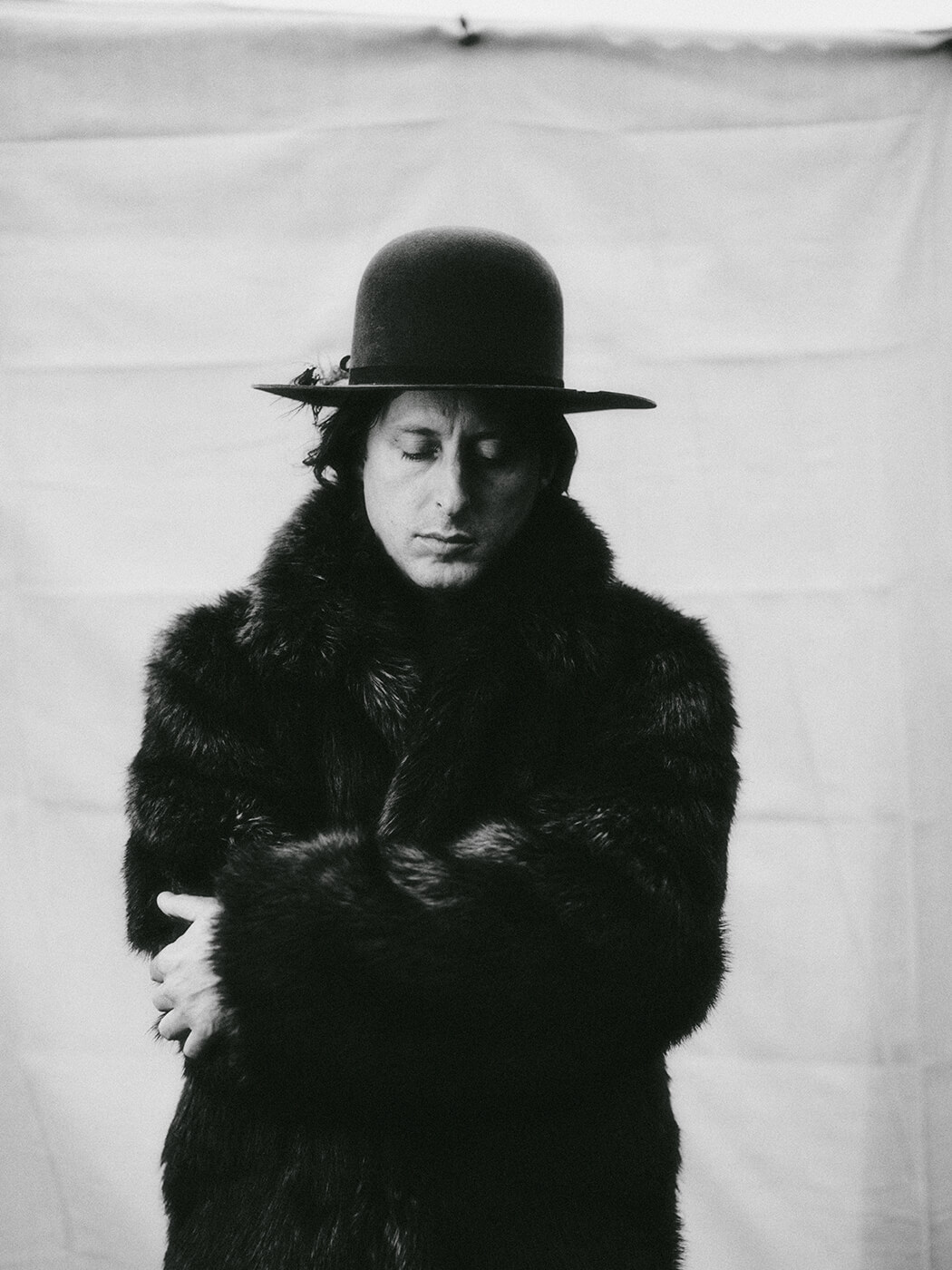
Seaside Escape
All Quiet On The Eastern Esplanade should correct that abstemious crime against Brit-rock history, recorded as it was over three intense weeks at The Albion Rooms in Margate during lengthy, exhausting sessions in studio. It isn’t the first time the band has reformed, but it has delivered their best work since the early 2000s.
Shiver, one of the early singles from the album, has roots as far back as 1996, when Barât was studying for a drama degree at Brunel University. He met Pete Doherty through his friendship with Doherty’s sister, Amy-Jo.
“Shiver has a couple of lines on it that Peter and I wrote a couple of weeks after we first met that I found after misplacing them,” Bârat explains. “I mean, each of our last albums has had something from back in the day that we�’ve relied on as a sort of spine, or central column [as a starting point]. This one is mostly new, other than a few words and flourishes from the past.”
The spine of Shiver then, began in much less cosy surroundings than The Albion Rooms…
“We were in a Victorian garret above a shop in Upper Richmond Road West in London,” he recalls. “The slightly posher bit, and it was freezing cold so we were trying to find things to burn in the fireplace. This sounds Dickensian! Peter and I had just met, we were just forging our friendship, and I’d left university. We had this shared love of poetry, war poetry especially.”
What began as the never-released The Last Dream of Every Dying Lover became Shiver nearly 30 years’ later.
“That had a really cool chord progression, which is still there in Shiver,” Barât explains. “Then, in that session In Jamaica [in 2022], we wrote a weepy, bleary-eyed retrospective song about our friendship. We ended up coming to the studio and using only the middle eight from the song about not dying at 25, which is the only thing that remains from the original song.”
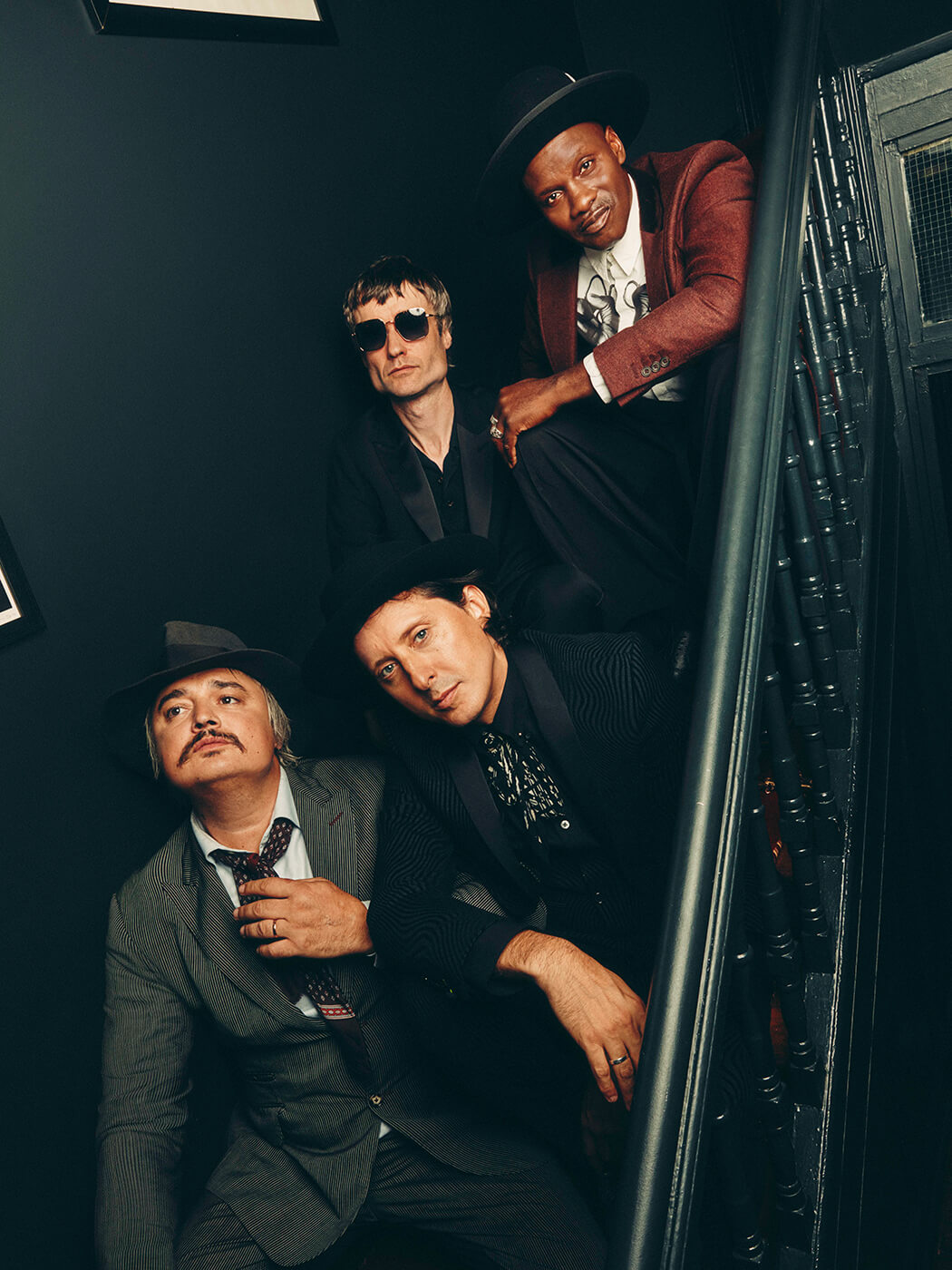
Old Albion
In 2010, the band reformed for a limited series of festival shows before a record deal with Virgin EMI Records in 2014 elicited their third album Anthems for Doomed Youth a year later. In 2020, the Libertines opened The Albion Rooms.
Ostensibly, it operates as their professional recording studio, but housed within a one-time bed-and-breakfast, The Albion Rooms is also a hotel and bar. Where else could you wake up, wander down for a full English breakfast and find Pete Doherty, guitar in hand, crooning the latest single before radio gets a hold of it? While The Guardian referred to it as “a glorified flophouse”, it is a courageous business and creative endeavour for the band, known for their on-point stylishness as much as their music.
“The purpose of getting a studio in the first place was to have bricks and mortar, and as a band, we wanted to have an HQ and a sense of community in Margate,” Bârat insists. “In terms of business, in the UK economy right now it’s not going to make any money. It’s backbreaking work to make it break even. It has taken so much work.”
If any two men deserve to emerge from a doomed youth to emerge as charming middle-aged hoteliers, it is Barât and Doherty. While Doherty’s spiralling behaviour and health was minutely documented in newspapers, magazines, blogs and books, it was his brother-in-arms, Barât, who bore the brunt of watching his best friend and creative partner living on a razor’s edge.
Founded in 1997, The Libertines emerged during a period in the late 1990s and early noughties when angular, bluesy “indie sleaze” defined a reckless, joyful, decrepit life of nightclubbing, sexual adventurousness, drug experimentation and seemingly eternal youth.
The Libertines could have reformed and performed their past albums to great acclaim, but All Quiet on the Eastern Esplanade showcases the best of the brotherly bonhomie between Barât and Doherty.
It is romantic and melancholy, melodic, sexy, restless and riveting across 11 tracks spanning garage rock (punky Be Young channels The Clash), Britpop, indie anthems (Mustang) and bittersweet ballads (Shiver and Songs They Never Play On The Radio).
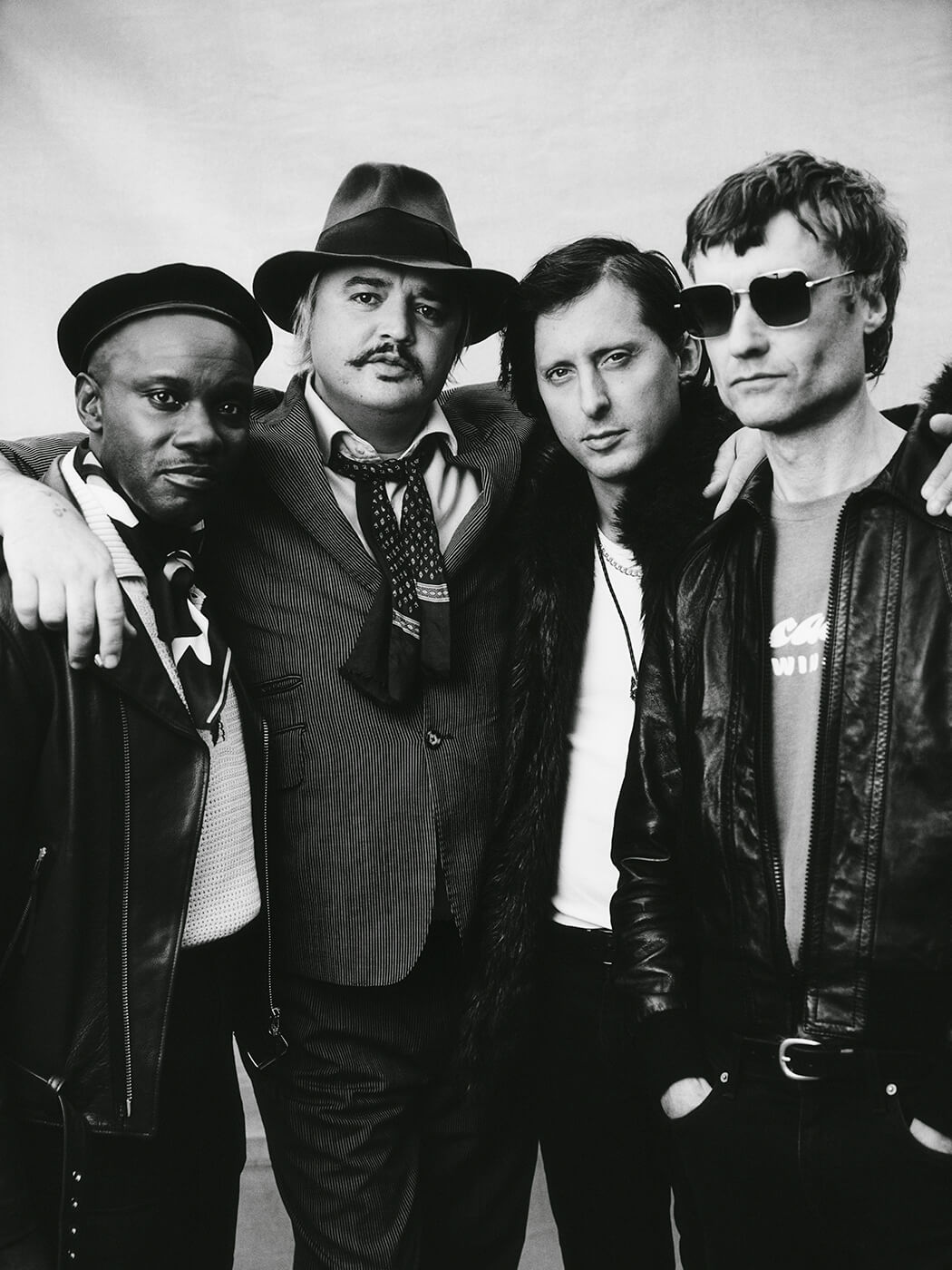
Keeping It Real
That alchemy is not built on smoke and mirrors in the studio nor in post-production, but a raw and unfiltered version that reflects the band’s collective energy.
“There’s nothing disguised,” affirms Barât. “The primal screams and death rattles have to be real, and we’ve got plenty of them. We’ve always shied away from having effects in music. We’ve always been into driving the amps rather than using effects. It was the Vox AC30 and AC15 together in the early days, then rigging a live JCM to an AC30.”
Barât says he prefers to write on the Gibson ES-335, because with his “nimble digits” (he wriggles them into the Zoom screen as evidence), he can walk around the house unplugged. But once in the studio, their toolkit was standard Libertines.
“We stuck to our tried and tested, really. The Epiphone Coronet and the Melody Makers, and John’s old 60s Precision Bass. There was a lot of J-45, and an old 70s Rickenbacker rocking around,“ he recalls.
If the formula works, why change it? But it’s not the guitars that make a Libertines’ album, it’s the Doherty-Barât chemistry and when they come up with a song together, it’s unmistakable.
“You can’t deny our chemistry once it’s in the room,” says Barât. “When it’ a Libertines thing, we know what’s going to fit. Tempo is the biggest difference [between Peter and I]. Left to my own devices, everything goes up 10bpm. But Pete loves to slow everything right down, which causes a bit of tension. Maybe that’s a good thing.”
Chemistry Lessons
While their 20s threw Doherty and Barât together through circumstance and mutual love of Amy-Jo Doherty, they’ve survived and thrived after conditions that would try most blood relationships.
“I dare say it’s something deep and a chemistry,” muses Barât. “We couldn’t fake this. It’s not just because we started the band together, and we still feel we have a mission. There’s genuine love there and in our time apart… this sounds like bad marriage therapy… there are parts of us that only the other part can complete. It’s as good and bad a friendship as you could ever hope to have.”
He adds, “You know when someone dies and part of your grieving is the person who you were to the person you’ve lost? There’s a version of myself that only exists with Pete, and I suspect the same for him. It feels like fate drew us together, circumstances prised us apart, and we clawed through the wreckage to find each other again.”
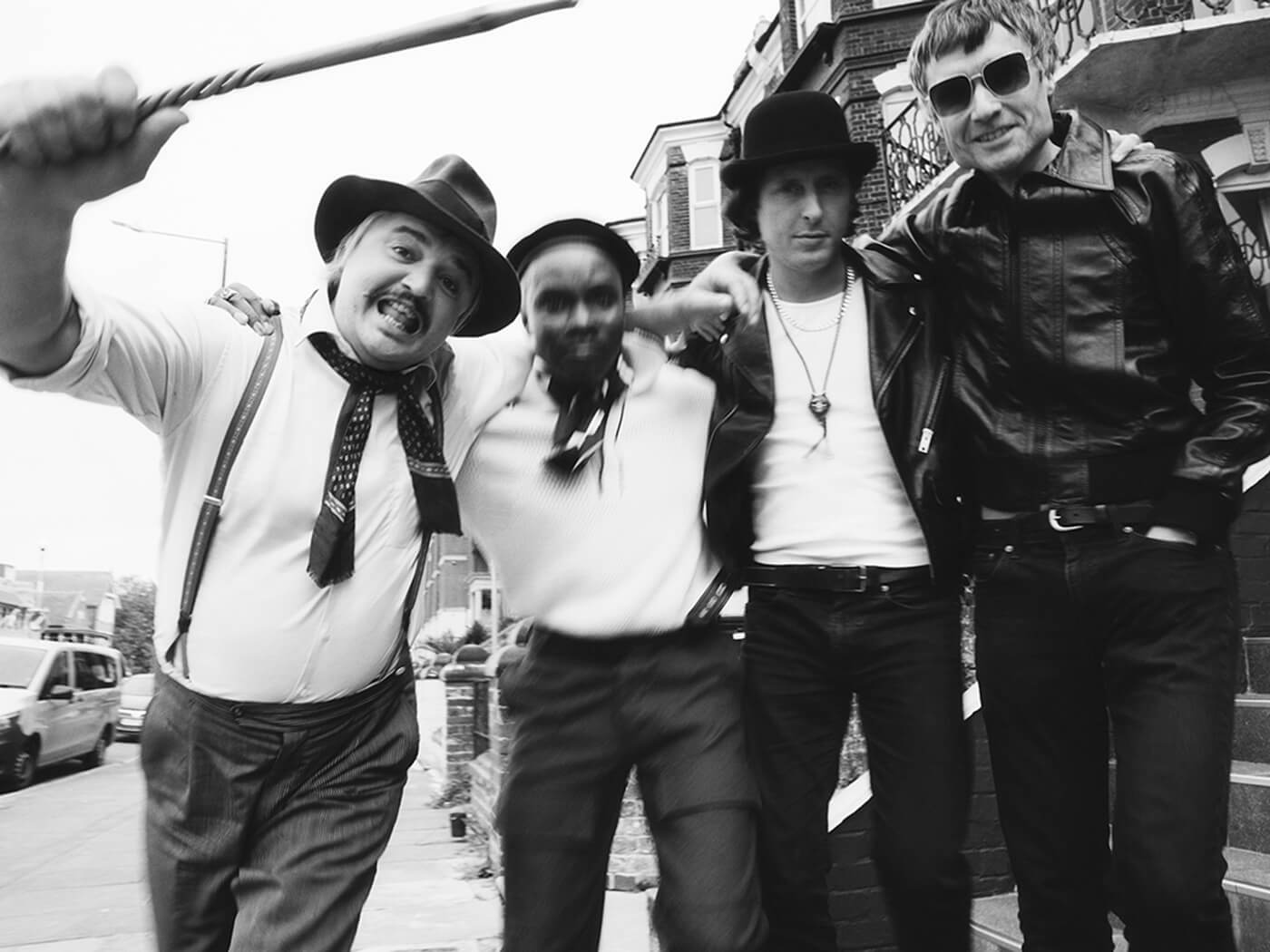
As for the less tabloid-centric members of the Libertines gang – drummer Gary Powell, bassist John Hassall and producer Dimitri Tikovoi?
“We’re like feral children, we have our own dialect,” says Barât. “Dimitri, our producer, is a workaholic Frenchman. I worked with him on Black Honey. We wrote some of the songs on their second album [Written & Directed, 2021] with Izzy [B Phillips] and I’ve done bits and bobs with Dimitri for years. I was nervous about how avant garde he was going to get with our thing, but he really listened and saw who we were and what we were capable of and played to that.”
And here we are, 30 years later, when Doherty and Barât can recall their personal history, and a grander love and dedication to the “Albion-ay”, the mythological, romantic Great Britain they’d idealised as twenty-somethings, and a friendship that has prevailed despite all odds.
All Quiet On The Eastern Esplanade is out 5 April on Casablanca/Republic
